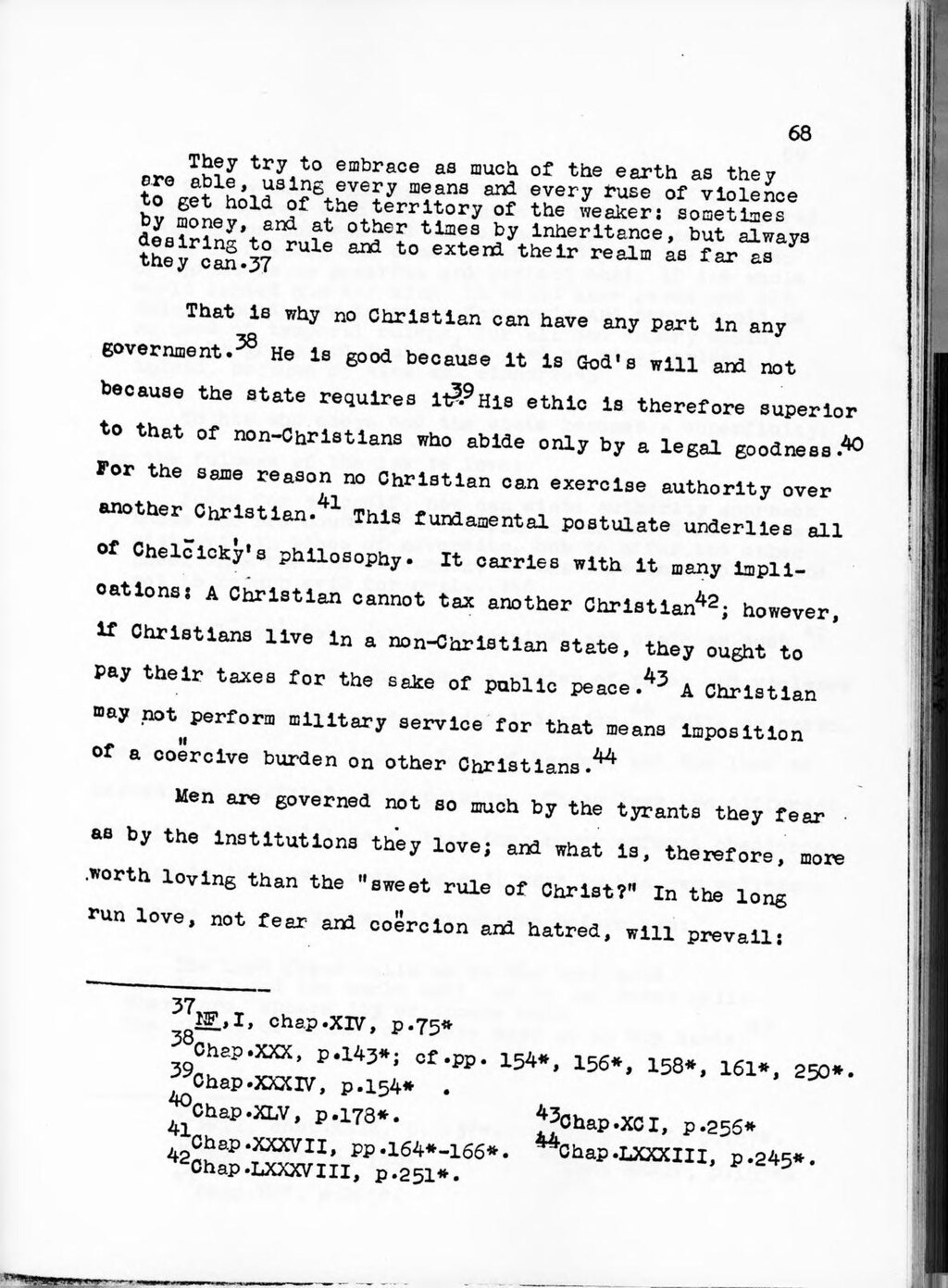That is why no Christian can have any part in any government.38 He is good because it is God's will and not because the state requires it.39 His ethic is therefore superior to that of non-Christians who abide only by a legal goodness.40 For the same reason no Christian can exercise authority over another Christian.41 This fundamental postulate underlies all of Chelc̄icky̍'s philosophy. It carries with it many implications: A Christian cannot tax another Christian42; however, if Christians live in a non-Christian state, they ought to pay their taxes for the sake of public peace.43 A Christian may not perform military service for that means imposition of a coercive burden on other Christians.44
Men are governed not so much by the tyrants they fear as by the institutions they love; and what is, therefore, more worth loving than the "sweet rule of Christ?" In the long run love, not fear and coërcion and hatred, will prevail:
